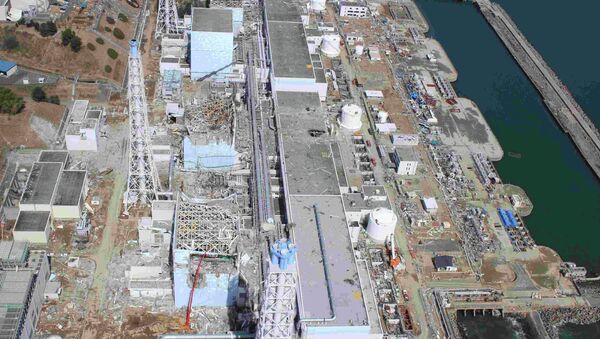Experts conducting round-the-clock monitoring of radiation in Russia's Far East said on Saturday that levels did not exceed natural background despite the accident at the Japanese nuclear power plant in March.
"As of Saturday morning, we have not detected radiation above natural background levels in Far Eastern regions [of Russia]," said a representative of the Emergency Situations Ministry's Far Eastern Regional Center.
The official said there were 630 fixed and mobile stations monitoring radiation levels across Russia's Far East, operated by the Emergency Situations Ministry, the Hydrometeorological Service, Russian sanitary watchdog Rospotrebnadzor and the military.
Japan's Fukushima Daiichi nuclear power plant was seriously damaged by the powerful earthquake and tsunami that hit Japan on March 11. Fukushima's operator has since been struggling to stop radioactive leaks from the plant's crippled reactors.
Russian officials have consistently said there is no evidence the radiation has spread to Russia's Pacific coast and they have advised people against taking radiation antidotes, but fears of nuclear fallout from the crippled nuclear plant have sparked a surge in sales of iodine-rich kelp in Russia's Far East.
Iodine lessens the amount of radiation the human body can absorb.
Radioactive elements have been found in the water, air and food products in some parts of Japan, and Russia has banned some food imports from Japan. Meanwhile, 47 Japanese automobiles indicating high levels of radioactivity remain in the port at the Russian Far East City of Vladivostok.
Tokyo Electric Power Co. (TEPCO), the operator of Japan's crippled Fukushima, on Friday began dumping bags containing zeolites - which are able to absorb radioactive substances - into the sea.
The Russian Geographic Society will next week send an expedition to the Sea of Japan to monitor the levels of nuclear contamination in the water, and check on seismic processes in an area stretching from the Kuril Islands to Kamchatka Peninsula.
VLADIVOSTOK, April 16 (RIA Novosti)


